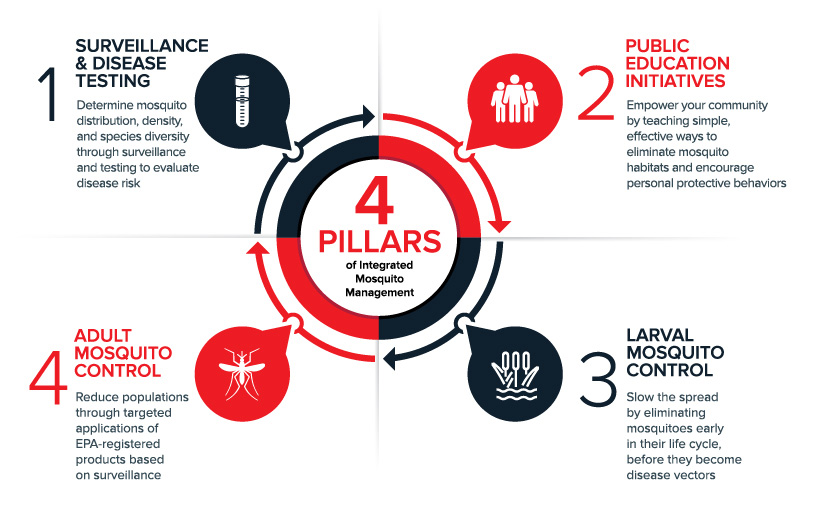Sustainable Mosquito Control: Eco-Friendly Strategies for Peaceful Living


Introduction:
Mosquitoes, notorious for their itchy bites and potential disease transmission, often prompt the use of chemical-laden solutions. However, embracing sustainable mosquito control strategies provides an eco-friendly alternative that safeguards both the environment and human well-being.
Understanding the Impact of Conventional Mosquito Control:
Traditional mosquito control methods frequently involve the use of synthetic pesticides and insecticides. While effective in reducing mosquito populations, these chemicals can have detrimental effects on non-target species, disrupt ecosystems, and contribute to environmental pollution. Sustainable mosquito control seeks to address these issues.
Biological Mosquito Control:
One sustainable approach is biological mosquito control, leveraging nature’s own checks and balances. This involves introducing natural predators like mosquito-eating fish, dragonflies, and certain bacteria that target mosquito larvae. By promoting a balanced ecosystem, biological control methods help manage mosquito populations without harming other species.
Habitat Modification for Mosquito Prevention:
Sustainable mosquito control extends beyond targeting adult mosquitoes to addressing their breeding grounds. Simple habitat modifications, such as eliminating standing water and promoting natural predators, disrupt the mosquito life cycle. This approach prevents the proliferation of mosquitoes at the source, contributing to a more sustainable solution.
Natural Repellents and Essential Oils:
For personal protection, sustainable mosquito control involves the use of natural repellents and essential oils. Ingredients like citronella, eucalyptus, and lavender are known for their mosquito-repelling properties. By incorporating these natural solutions into personal care products, individuals can reduce their reliance on chemical repellents.
Mosquito-Repellent Plants in Landscaping:
Landscaping with mosquito-repellent plants is an aesthetically pleasing and sustainable strategy. Plants such as citronella, marigold, and lavender not only add beauty to outdoor spaces but also naturally deter mosquitoes. Integrating these plants into gardens and outdoor areas contributes to a mosquito-resistant environment.
Use of Mosquito Nets and Screens:
A simple yet effective sustainable strategy is the use of mosquito nets and screens. These physical barriers provide protection indoors and outdoors without relying on chemical methods. Incorporating mosquito nets into sleeping areas and installing screens on windows and doors create a safe and sustainable shield against mosquitoes.
Community Engagement for Source Reduction:
Sustainable mosquito control often involves community engagement for source reduction. Educating communities about the importance of eliminating standing water, proper waste disposal, and adopting eco-friendly practices contributes to a collective effort in reducing mosquito breeding habitats.
Innovative Technologies:
Advancements in technology offer sustainable mosquito control solutions. For instance, mosquito traps that mimic human breath and utilize environmentally friendly lures can effectively capture mosquitoes without the need for chemical pesticides. Embracing innovative and eco-friendly technologies enhances the sustainability of mosquito control efforts.
Public Health Campaigns for Awareness:
Public health campaigns play a crucial role in promoting awareness about sustainable mosquito control. Informing the public about the potential environmental impact of conventional methods and providing alternative, eco-friendly solutions empower individuals to make choices that align with both personal well-being and environmental health.
Linking to Sustainable Mosquito Control Strategies:
Explore effective and sustainable mosquito control strategies at Sustainable Mosquito Control Strategies. Discover how these methods not only manage mosquito populations but also contribute to a healthier and more eco-conscious living environment. Embrace sustainable mosquito control for a harmonious coexistence with nature.
Conclusion:
In the quest for mosquito control, sustainability emerges as a key consideration. By adopting eco-friendly strategies, individuals and communities can effectively manage mosquito populations while minimizing harm to the environment. Sustainable mosquito control is not just a solution to a nuisance; it’s a step towards creating a balanced and harmonious living space for all.







